Last Updated on July 30, 2023
Right here on Collegelearners, you are privy to a litany of relevant information on how to become a python developer in 3 months, python developer salary, become a python developer in 30 days and so much more. Take out time to visit our catalog for more information on similar topics.
How to Become a Python Developer
BrainStation’s Python Developer career guide can help you take the first steps toward a lucrative career in Python programming. The guide provides an in-depth overview of the Python programming skills you should learn, the best training options, career paths in Python, how to become a Python Developer, and more.
Become a Python Developer
Speak to a Learning Advisor to learn more about how our bootcamps and courses can help you become a Python Developer.
By clicking “Submit”, you accept our Terms.SubmitLearn more about our Python Course
As there is no specific background or experience required for you to become a Python Developer, there are a number of ways you can enter the field. It all starts, however, with a specific set of skills, and more specifically, a mastery of the Python programming language.
Many Developers find that the Python programming language has a lot of features that give it an edge over other programming languages. For instance, easy syntax and readability makes learning Python a lot easier, which should help you boost your skills with Python relatively quickly. And based on Stack Overflow question views in World Bank high-income countries, Python is only rising in popularity among programming languages.
How to become a Python Developer in three steps:
- Learn to read and write in Python
- Work on projects with Python to develop your skills
- Develop a portfolio of projects completed with Python
STEP 1Learn to Read and Write in Python
Since Python is relatively easy and intuitive for newcomers to learn, a Python Programming course could help you quickly learn how to read and write in the language and leave you feeling like a Python pro in a very short period of time.
Because Python is a versatile, general-purpose, and extremely popular programming language, it’s often considered the best first language for newcomers to learn. It’s an excellent choice as an introductory language because it is concise and easy to read. And since it’s so widely useful — it can be used for everything from web development to software development or even scientific applications — it’s really a language any programmer should have in his or her stack. It is also one of the most widely used languages for Back-End Developers, Data Scientists, and Machine Learning Engineers.
And because it’s relatively straightforward, some courses promise they can make you a Python professional in as little time as 25 hours.
BrainStation, for example, offers a part-time online Python Programming Course.
STEP 2Work on Projects With Python to Develop Your Skills
One surefire way to develop your skills with the Python programming language is to work on projects.
Getting your hands dirty with a fun project will sharpen your skills and ensure that you’re ready when you face challenges in the future.
Here are just a few ideas to get you started on your first Python project:
- Make a website. This one might sound a little obvious, but coming up with an idea for a website and using a framework like Django or Flask to build it is an excellent idea to gain experience with Python.
- Create a game. This might not be the first thing you think of when you think of Python, but there are actually some amazing libraries out there (including Pyglet, Panda3D and Pygame) to help you create a game using the program. Bonus points if you have kids who can test it out for you!
- Build a web service. You’ll want to have some practice creating a web service, and frameworks such as Falcon or, again, Flask, can be a big help.
- Collect data from the Internet. Python is a beloved tool for fetching data, with some terrific libraries available to make your life much easier.
STEP 3Develop a Portfolio of Projects Completed With Python
As you build your experience with the Python programming language, it’s important to develop a portfolio of projects completed with Python to showcase your work, including importing, exporting, and manipulating data sets, as well as visualizations such as graphs, bar charts, and more.
If you’re not actively employed and building your portfolio on a day-to-day basis, take this time to come up with ideas for projects that you can execute and later add to your GitHub. That way, you can later show an employer that you know how to get your hands dirty with code. A few ideas for projects include organizing files on your machine, keeping track of your digital collections, or training a neural network.
Another option is to pursue one of many Python Programming courses. That way, you’ll develop your portfolio under the supervision and tutelage of an industry professional who knows exactly what employers are looking for. Further, you’ll receive a certification that will help you stand out from the pack.
What Is Python Programming Used For?
Unlike HTML, CSS, and JavaScript, the “building blocks of the internet,” Python is a general-purpose programming language, which means that it can be used for more than web development, including software development, writing system scripts, and perhaps most importantly for the future – data science.
Created by Guido van Rossum in 1991, the intention behind Python was to help Developers write clear, logical code, and this philosophy has made it one of the most popular programming languages. According to BrainStation’s 2020 Digital Skills Survey, Python is used by 25.4 percent of Developers – a number that’s on the rise.
The introduction of Python 2.0 brought the language into its modern form in the early 2000s. But at its core, it remains the same. Python code uses the “object-oriented” paradigm, so it’s usually the best option both for large-scale projects and smaller programs.
The Python Package Index shows thousands of third-party modules for Python.
Some of Python’s uses include: web and Internet development (using frameworks such as Django and Pyramind); scientific and numeric computing; teaching programming, both at introductory and advanced levels; software development; and building eCommerce platforms.
Is Python Programming a Growing Field?
Yes, the popularity and demand for Python programming – and the demand for Python Developers – continues to grow at a consistent rate. One estimate has over 40,000 jobs currently available for professionals with Python programming skills and experience.
This increase in demand is partly down to the popularity of the Python programming language itself. According to the TIOBE Programming Community index, which tracks the popularity of programming languages around the world, Python is currently the third most popular programming language, and one of the fastest-growing programming languages.
In an independent survey, it was also found that the Python programming language is currently the most popular language for Data Scientists around the globe.
Further proof of Python’s popularity is that 41 large organizations in the world have adopted Python as their primary programming language in a very short period of time. Some of the major companies that now have most of their new code written in Python include Quora, Facebook, YouTube, Netflix, Dropbox, Pinterest, and Reddit. Google too has committed to using it more in its new product offerings.
Why Is Python So Popular?
There are a number of reasons for Python’s increasing popularity.
First, Python has relatively easy syntax and readability, which makes learning the language much easier for beginners. This relative ease means that Developers can spend more time on implementation, and less on building complex programs. Second, Python is a general-purpose programming language, with great analytical capabilities and a range of libraries (including Matplotlib, Numpy, and Pandas, among others), which makes it suitable for a number of applications, including back-end development, application development, data science, machine learning, and notably, artificial intelligence, to name a few.
Python features like one-liners and its dynamic type system allow Developers to write far fewer lines of code for tasks that require more lines of code in other languages. This makes Python a very easy-to-learn programming language even for beginners and newbies. For instance, Python programs are slower than Java, but they also take much less time to develop, since Python codes are three to five times shorter than Java codes.
Finally, Python is free and open source, and perhaps more importantly, a cross-platform language, meaning it can be run on Mac, Windows, Linux, and Raspberry Pi.
What Is a Python Developer?
In simplest terms, a Python Developer is a Developer who uses the Python programming language to design, code, and debug applications and projects. Because of the versatility of the language, however, a Python Developer may have a number of tasks, including data collection and analytics, automation, web development and design, scripting, and more.
In addition, a Developer’s reliance on Python does not always make them a Python Developer; they may work under a range of different job titles, such as Web Developer, Software Engineer, and Data Analyst, among others.
In these roles, you may create an application for your employer, design the framework for your code, build tools as necessary to get the job done, create websites, or publish new services. Python Developers often work with data collection and analytics to create useful answers to questions and provide insight where it’s most crucially needed.
Like most programming positions, the specifics of this job vary based on the needs of your employer. Some Python Developers work as independent contractors instead of being exclusive to one company.
Python Developers may also be responsible for a variety of duties including: writing and implementing high-availability, low-latency and performant applications; create database schemas representing and supporting business processes; and integrating user-facing elements developed by Front-End Developers with server-side logic.
What Is the Salary of a Python Developer?
According to Glassdoor, the national average salary for a Python Developer is $76,526 in the United States, with salaries ranging from $58,000 to $107,000.
How Do I Become a Python Developer With No Experience?
You can become a Python Developer with no experience, but as outlined above, the only way to accomplish this is by building the right skills and then being able to demonstrate these skills. Seek out the right training options and Python courses to help accelerate your learning, then start coding in Python as much as possible!
Beginning your career as a freelance Python Developer is another way to get a foot in the door with no experience. That will allow you to begin building your portfolio and making industry contacts that could lead to a job.
Python Developers are in hot demand – BrainStation’s 2020 Digital Skills Survey found that roughly 25 percent of Developers are familiar with it, so Python Developers definitely have a specialized skill set – so it should be easier to break in than other industries.
Another idea is to make open source contributions. You can look up other people’s repositories in GitHub and make contributions to their associated projects. That demonstrates that you’re a team player who can add value to existing work.
Finally, you could start a blog to gain credibility and attention. You could write about your journey as a Python Developer, the projects you’re working on, and what materials you used for collecting information. This gives recruiters a chance to quickly learn your coding style.
Let’s take a closer look at some of the basic skills you will need to build to become a Python Developer:
Python
It should go without saying, but you will need to master the Python programing language to become a Python Developer. To start, you will have to learn essential concepts in Python, including object-oriented programming, basic Python syntax, semantics, primitive data types, and arithmetic operators.
Python was designed for readability, and has some similarities to the English language with influence from mathematics.
Python libraries
As an open source, community-based programming language, Python has a wide range of libraries available, and these resources can simplify your life as a Python Developer. Different projects will require different libraries, but it is a good idea to familiarize yourself with some of the most common, including Pandas and NumPy.
The Python Package Index (PyPI) is a repository of software for the Python programming language.
Python frameworks
You will be required to know Python Frameworks to become a Python Developer, but like the libraries mentioned above, what you work with will depend on your project. Some of the most common Python Frameworks, however, include Django, Flask, and CherryPy, among others.
The majority of Python Frameworks are exclusively server-side technology, although some Web frameworks are beginning to include AJAX code that helps Developers with the difficult task of programming (client-side) the user’s browser.
ORM libraries
It’s also extremely helpful for Python Developers to be familiar with Object Relational Mapper (ORM) libraries, such as SQLAlchemy or Django ORM, which can help convert data between incompatible systems.
ORMs provide a high-level abstraction upon a relational database, allowing Developers to write Python code instead of SQL to create, update, read, and remove data and schemas in their database.
12 Tips On How To Become a Python Developer
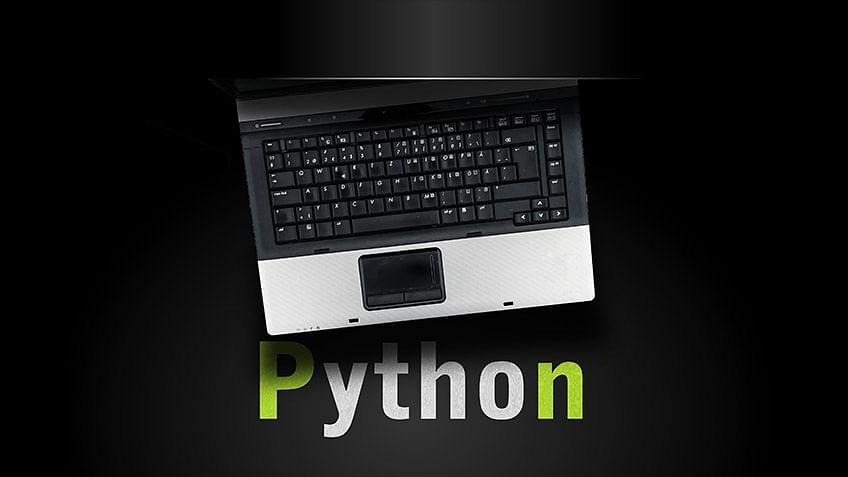
Table of Contents
How To Become a Python Developer?Get Started
Although Python developers are one of the most sought after employees in the IT market today, there’s still plenty of competition for the choicest positions. Fortunately, there are some easy tips you can use to improve your marketability as a Python developer.
Here are 12 selected tips that would give you a better insight into how to become a Python Developer:
How To Become a Python Developer?
Tip 1: Build Your GitHub Repository
Your GitHub repository also serves as your resume when you are interviewing for a position as a Python developer. Recruiters can look at it on the developer platform instead of you needing to send samples of your work in zip files.
Python Training Course
Learn Data Operations in PythonEXPLORE COURSE
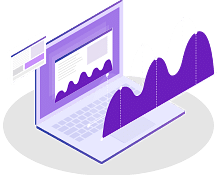
Add your Python projects and practice work to your GitHub repository. Even if it is just a simple code you wrote or an existing code that you have made minor changes. Every piece of work counts.
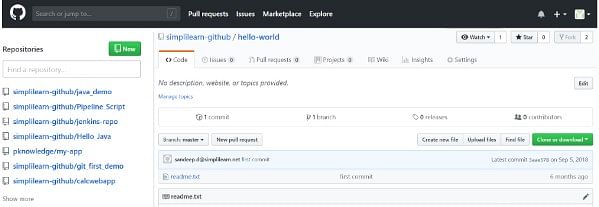
Tip 2: Write Readable Code
Although this seems obvious, it bears mentioning anyway. When writing code, make sure others can read and understand it. After all, if recruiters are viewing your code on GitHub, they need to grasp what you’ve done; otherwise, it could count against you.
Fortunately, there are guidelines available to help you write readable code, including PEP 8 style guidelines. They recommend using the following :
- Indentation
- Tabs and spaces
- Maximum line length
- Line breaks
- Blank lines
- Source file encoding
- String quotes
- White spaces in expressions
- Trailing commas
- Naming conventions
Tip 3: Create Proper Documentation
Proper documentation helps improve code readability. Keep in mind that you should include a README file within your GitHub repository. The README file should contain introductory information regarding your project: what the project does, the various libraries used, and so on.
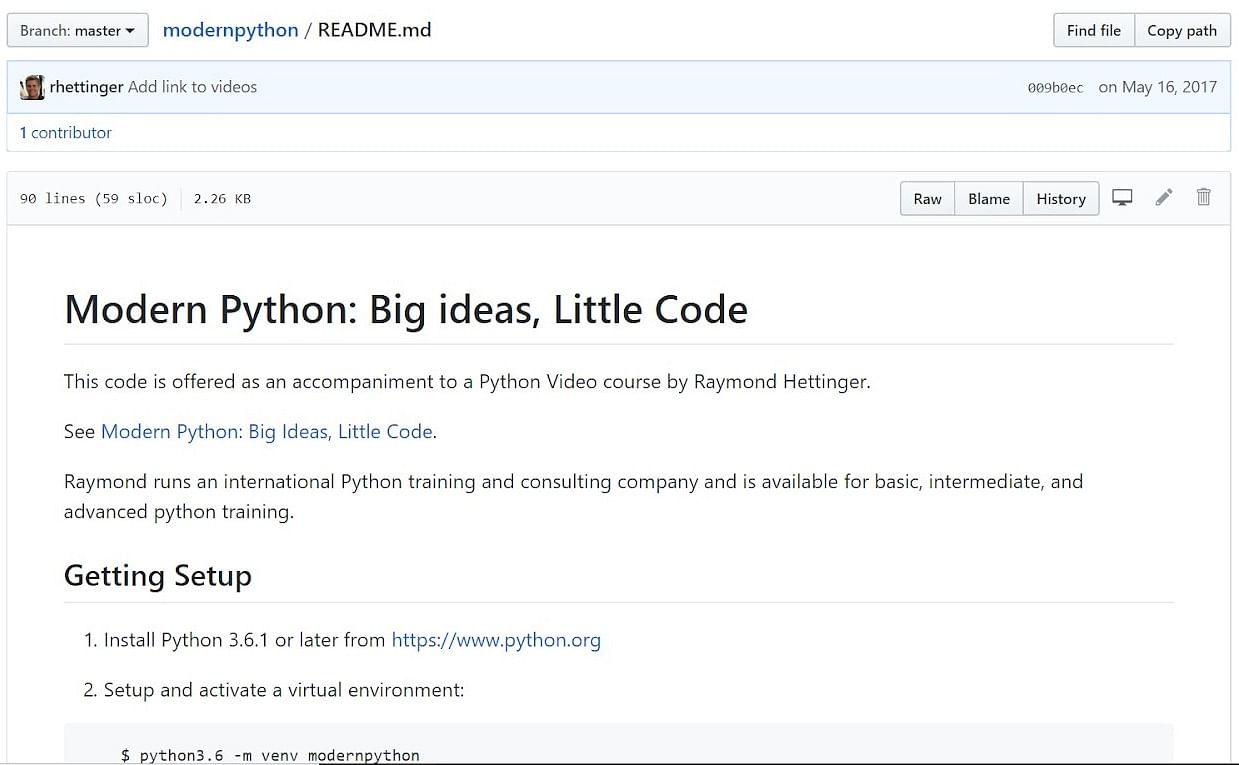
Source: Raymond Hettinger’s GitHub documentation
The README file is useful for readers who want to learn from your code or try to implement it differently.
Free Course: Programming with Python
Learn the Basics of Programming with PythonENROLL NOW
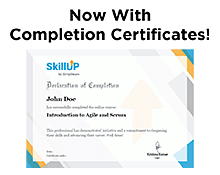
Tip 4: Read Other People’s Code Around Your Skill Level
There are many people on GitHub who have unique and organized styles of coding. One of the best ways to develop your coding style is to learn from other Python developers. Look at other codes that are similar to your skill level to get an idea of what different styles are out there.
Some of the most popular GitHub developers include Fredrik Lundh, Kenneth Reitz, Armin Ronacher, Raymond Hettinger, Doug Hellmann, and Daniel Roy Greenfeld.
Learn data operations in Python, strings, conditional statements, error handling, and the commonly used Python web framework Django with the Python Training course.
Tip 5: Read books on Python Coding
Even if you are an experienced Python developer, there’s always something new to learn. And you’ll find plenty of new material in Python coding books. The more you know, the more your confidence increases.
Here are some of the most popular books on Python:

Data Science with Python
The Ultimate Ticket To Top Data Science Job RolesEXPLORE COURSE
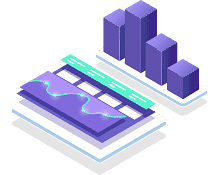
Tip 6: Grow Your Python Skillset
If you want a reliable way to enhance your Python experience and stay competitive, grow your skillset. In addition to reading books on the subject, you should understand how to work with some of the following Python libraries:

While learning all of the libraries would be ideal, you can still make significant progress by mastering at least a couple. Create projects based on what you learn in these libraries, and add them to GitHub for others to see. This practice improves your GitHub repository and helps you retain the new knowledge since the best way to remember further information is to start using it immediately.
Tip 7: Master AI and Machine Learning with Python
It is never enough to learn a language; you need to practice with it. Some of the most crucial Python applications are in the fields of Artificial Intelligence (AI) and Machine Learning. Learn the various algorithms used in these areas and implement projects using them.
Here are some standard algorithms to learn:

Learn and list these skills in your GitHub repository to increase your value as a Python developer.
Tip 8: Accept Freelance Projects
Writing code and creating projects is not enough if you want to become a Python developer. You also need to accept freelance projects from others. Whether they are paid or unpaid, having completed projects in your repository will pay off in the long run.
You can search for freelance work as a python developer on these sites:
- Freelancer
- Upwork
- Twago
- PeoplePerHour
- Fiverr
- Truelancer.com
Tip 9: Make Open Source Contributions
You can look up others’ repositories in GitHub and make contributions to their associated projects. This practice shows that you have what it takes to be a team player by adding value to existing work.
Some popular open-source Python projects you can contribute to include:
- Pipenv: Python Development Workflow for Humans
- Chatistics: Python scripts to parse your Messenger, Hangouts, and Telegram Chat Logs into DataFrames
- Som-tcp: Solving the Traveling Salesman Problem using Self-Organizing Maps
- Py2bpf: A python to bpf (Berkeley Packet Filter bytecode) converter
Tip 10: Start a Blog and Write about What You Have Learned
A blog adds credibility to your profile. You can write about how you started as a beginner, your journey to where you are now as a python developer, what materials you used to collect information, what projects you worked on, and so on. As a result, recruiters can glance at your profile and quickly learn your coding style.
Free Course: Python Libraries for Data Science
Learn the Basics of Python LibrariesENROLL NOW

Tip 11: Follow a Daily Schedule for Practice
Just because you have mastered the language doesn’t mean you should stop coding. To become a Python developer, you should take out some time every day to write code so that every aspect of Python is at your fingertips. Whether it’s simple or complex code, write something every day. You can retain lessons better if you keep using them.
Tip 12: Keep Your Resume and Profile Updated on Job Portals
Make sure your information is up to date on job portals like LinkedIn, Indeed, Glassdoor, and CareerBuilder. Always be on the lookout for Python developer roles on these sites, and keep your resume up to date, so recruiters take notice.
